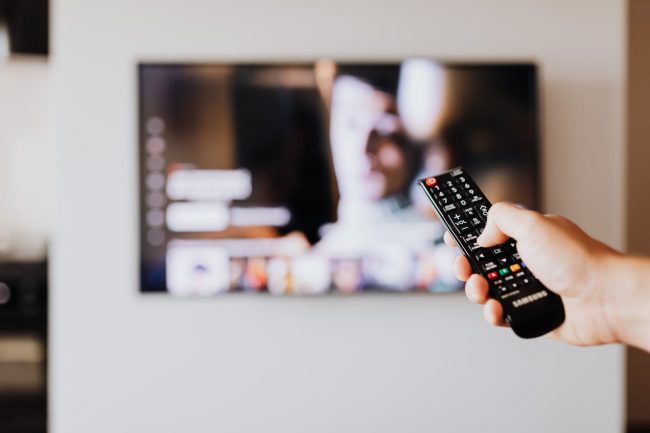
Sticking to old habits can feel safe, but sometimes it’s expensive. Many boomers grew up with certain money routines that made sense decades ago. But times have changed. Some habits that once helped people save are now quietly draining their wallets. If you’re a boomer, or you care about one, it’s worth looking at these outdated habits. Small changes can add up to big savings over time.
1. Paying for Cable TV
Cable TV used to be the only way to watch your favorite shows. Now, it’s one of the most expensive ways to get entertainment. Many boomers still pay for big cable packages, even though streaming services offer more choices for less money. Cutting the cord can save hundreds each year. Try switching to a streaming service or using a digital antenna for local channels. You’ll still get the news and shows you like, but you’ll keep more money in your pocket. The average cable bill in the U.S. is over $100 per month, while streaming services can cost as little as $10 to $20 per month.
2. Sticking With the Same Bank
Many boomers opened their first bank account decades ago and never switched. But banks change. Some charge high fees for checking accounts, overdrafts, or ATM use. Online banks and credit unions often offer better interest rates and fewer fees. Take a look at your statements. If you’re paying monthly fees, it’s time to shop around. Moving your money could save you hundreds each year.
3. Ignoring Automatic Bill Payments
Writing checks for bills is a habit that’s hard to break. But mailing payments can lead to late fees if you forget or the mail is slow. Many companies now offer automatic payments. Setting up autopay means you never miss a due date. You avoid late fees and sometimes even get a small discount. It’s a simple way to keep more of your money.
4. Keeping Landline Phones
Landlines used to be a must-have. Now, most people use cell phones for everything. But many boomers still pay for a landline “just in case.” That extra bill can cost $30 or more each month. If you already have a cell phone, think about dropping the landline. You’ll save money and still be reachable.
5. Not Shopping Around for Insurance
Insurance rates change all the time. But many boomers stick with the same company for years. Loyalty doesn’t always pay off. You might be missing out on better deals. Compare rates for car, home, and health insurance every year or two. Even a small drop in your premium can save you hundreds. Use online tools to compare quotes quickly.
6. Using Old Appliances
Older appliances use more energy. That means higher utility bills. Many boomers keep using the same fridge, washer, or dryer for decades. Upgrading to energy-efficient models can cut your electric bill. Look for appliances with the ENERGY STAR label. The upfront cost pays off over time. Some states even offer rebates for trading in old appliances (source).
7. Carrying Credit Card Balances
Credit cards are convenient, but carrying a balance is costly. Interest rates are higher than ever. Some boomers pay only the minimum each month, thinking it’s manageable. But interest adds up fast. Try to pay off your balance in full. If you can’t, look for a card with a lower rate or transfer your balance to save on interest.
8. Over-Tipping Out of Habit
Tipping is important, but some boomers tip more than needed out of habit. For example, tipping 20% or more at places where it’s not expected, like takeout counters. Over time, these extra tips add up. Check what’s standard for each service. You can still be generous without overspending.
9. Not Reviewing Subscriptions
It’s easy to sign up for magazines, clubs, or online services and forget about them. Many boomers have subscriptions they don’t use. These small charges can slip by unnoticed. Review your bank and credit card statements every few months. Cancel anything you don’t use. You might be surprised at how much you save.
10. Avoiding Technology
Some boomers avoid new technology because it feels overwhelming. But this can cost money. For example, using paper coupons instead of digital ones, or not using apps that track spending. Learning a few basic tech skills can help you find deals, manage your money, and avoid scams. Ask a friend or family member for help, or look for free classes at your local library.
Small Changes, Big Savings
Old habits are hard to break, but they don’t have to cost you. By looking at your routines and making a few updates, you can save thousands over time. The world has changed, and so have the best ways to manage your money. Don’t let outdated habits drain your savings. Take a fresh look at your spending and see where you can make simple changes. Your wallet will thank you.
What outdated habit have you noticed costing you money? Share your story in the comments.
Read More
Unnecessary Purchases That Hinder Savings
7 Signs That You Are Under-Investing

Travis Campbell is a digital marketer and code developer with over 10 years of experience and a writer for over 6 years. He holds a BA degree in E-commerce and likes to share life advice he’s learned over the years. Travis loves spending time on the golf course or at the gym when he’s not working.






